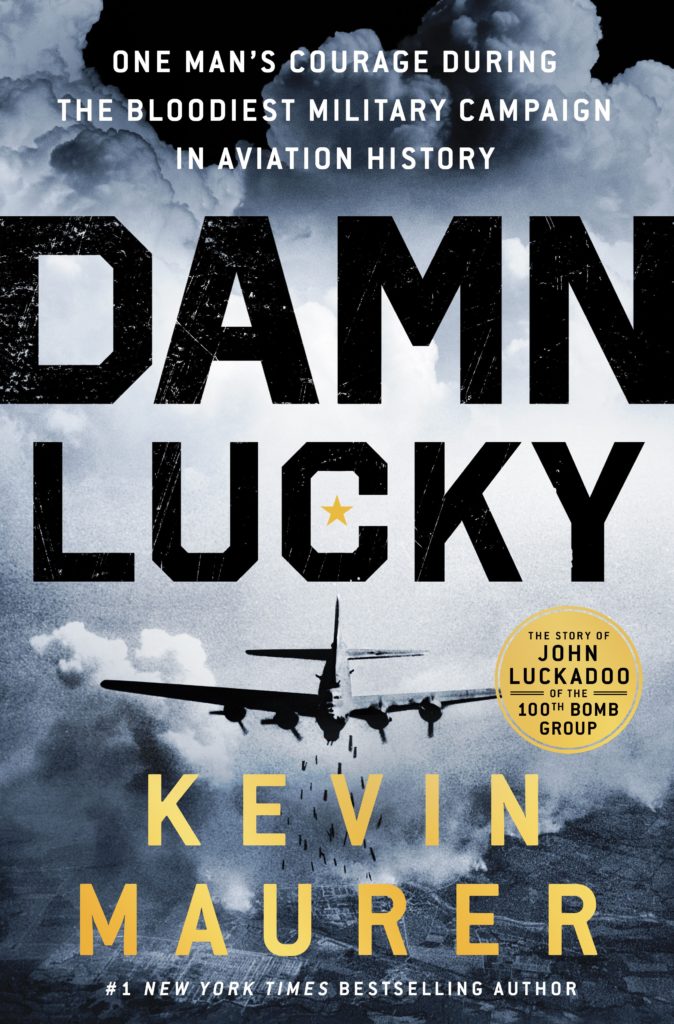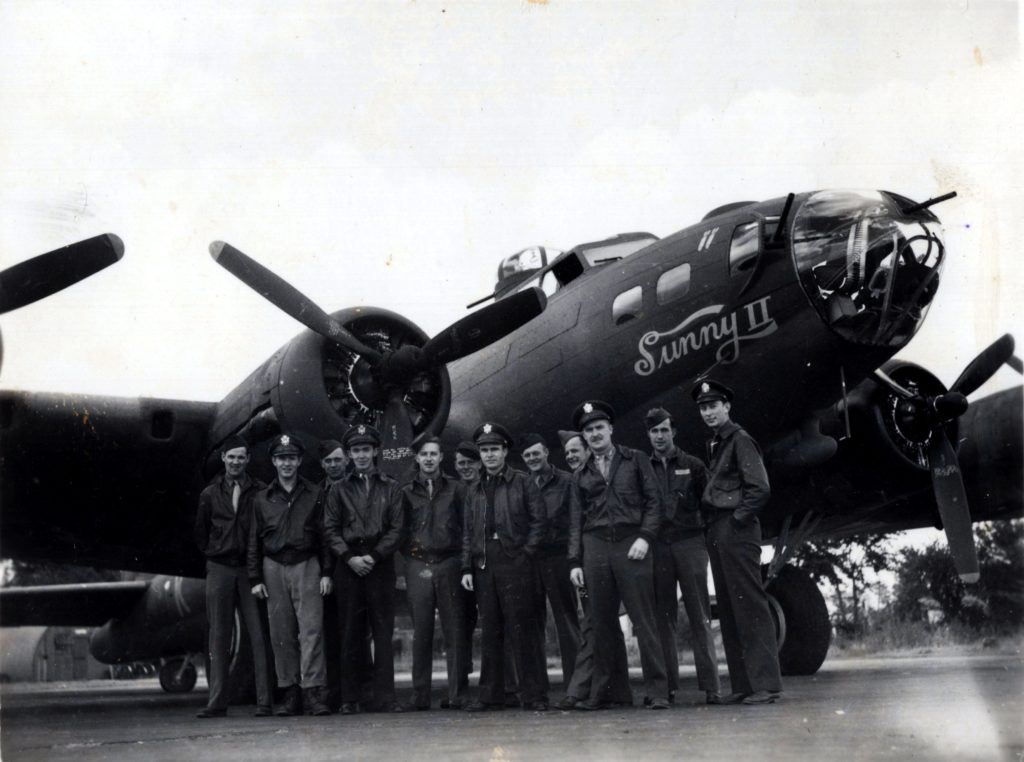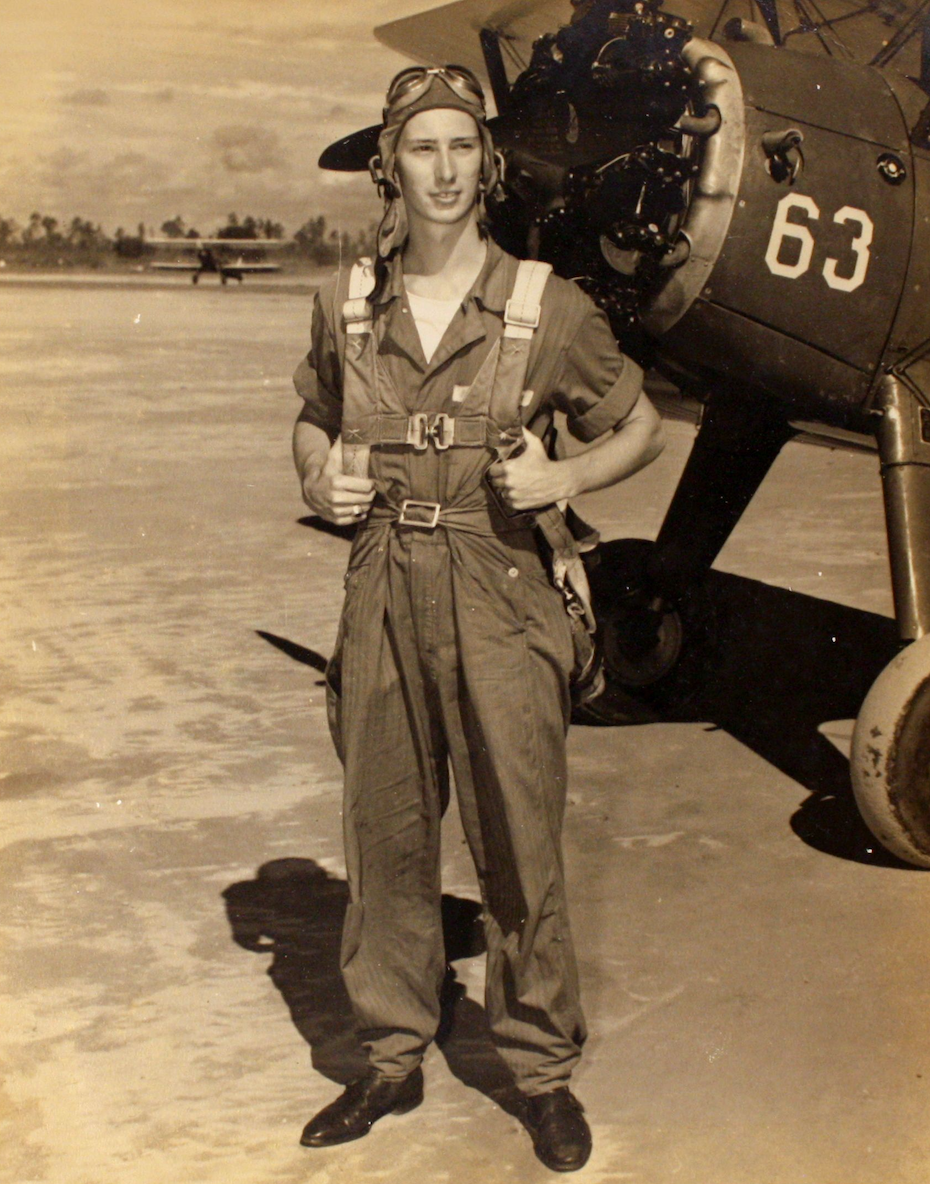“Lucky had no idea why he was spared while others were not,” writes war correspondent and journalist Kevin Maurer, plunging readers into the horrific day-to-day existence of an American bomber crew over Germany in 1943. “But late at night, when it was just his nightmares over Bremen, he knew his survival was just a matter of pure luck.”
Maurer is the author of 2020’s “Rock Force,” a true-life tale of the World War II paratroopers who recaptured the Philippine fortress of Corregidor in 1945. He revisits the era in his latest book, “Damn Lucky,” which follows the improbable adventures of Lieutenant John “Lucky” Luckadoo, a pilot with the U.S. Eighth Air Force’s 100th Bomb Group. Lucky arrived at the group’s base, a former Royal Air Force airfield at Thorpe Abbotts in England, in June 1943, launching his military career with an obvious nickname — and ending it having completed 25 missions in heavily defended German skies.
For American airmen, the summer and fall of 1943 were the worst of times. Statistically, half would be wounded, shot down and captured, or killed before completing those 25 missions that would be their ticket home. Over the next year and a half, the Eighth Air Force’s strategic bombing campaign would substantially cripple the Third Reich’s war economy — but in 1943, Lucky and his fellow bomber crews fought a determined and deadly enemy in a world where every second lasted an hour and where victory lay in an incalculably distant future.

Damn Lucky
One Man’s Courage During the Bloodiest Military Campaign in Aviation History
by Kevin Maurer, 320 pages, St. Martin’s Press, 2022, $29.99.
This post contains affiliate links. If you buy something through our site, we might earn a commission.
As its title suggests, this book is equal measures about a World War II airman being very fortunate and very damned. Declared a washout in basic flight training, Lucky was granted one more chance by an experienced civilian instructor who recognized his performance as the product of poor instruction. When he finally received his assignment as a co-pilot at a stateside training base at Kearney, Nebraska, in March 1943, he found himself inserted into an established crew that considered him a jinx: “Changing anything on a crew was looked at as a bad omen,” he soon learned. They hazed him mercilessly with cruel pranks. Damn unlucky. Yet all this paled by comparison to what the Germans meted out when the crew went into combat: “How the hell did I get into a spot like this?” Lucky asked himself during a mission in June 1943 against heavily defended U-boat pens in occupied France.
Maurer immerses us in the sights, sounds, and smells of combat: waves of enemy interceptors; orange flames shooting out of the No. 3 engine; a sky filled with black puffs as antiaircraft shells explode, sending a “maelstrom of shrapnel.” And finally, the specter of 10 more empty bunks in the barracks for every bomber down.
But the book truly excels in pulling the reader into the feel of those endless moments of terror when flak battered the airplane — and once when a pocket Bible was the only thing separating a shard of shrapnel from Lucky. There was his own physical reaction to combat: “Lucky’s heart rate picked up. His breathing labored. It felt like something was compressing his rib cage” — and then there were the times when Lucky was so “indifferent to death,” Maurer writes, that he felt “surprised when it did not come.”

Maurer’s experience as a combat journalist shows in his ability to craft a powerful personal narrative that puts readers into the cockpit. If this book has a weakness, it is that Maurer did not include an introduction or foreword to let us know upfront that his narrative is based on what were presumably extensive interviews with Luckadoo. The author does grant his subject an afterword, but a foreword would have allowed us to know from the get-go that the often deeply personal quotes sprinkled throughout the book originated with Luckadoo himself.
As Lucky, now 99 and with a successful real estate career behind him, reflects in the book’s afterword, “We were young citizen-soldiers, terribly naive and gullible about what we would be confronted with in the air war over Europe. And the profound effect that it would have upon every fiber of our being for the rest of our lives.”
If this book has any message, it is that survival — and the luck that helped deliver it — must not be taken for granted.
historynet magazines
Our 9 best-selling history titles feature in-depth storytelling and iconic imagery to engage and inform on the people, the wars, and the events that shaped America and the world.






